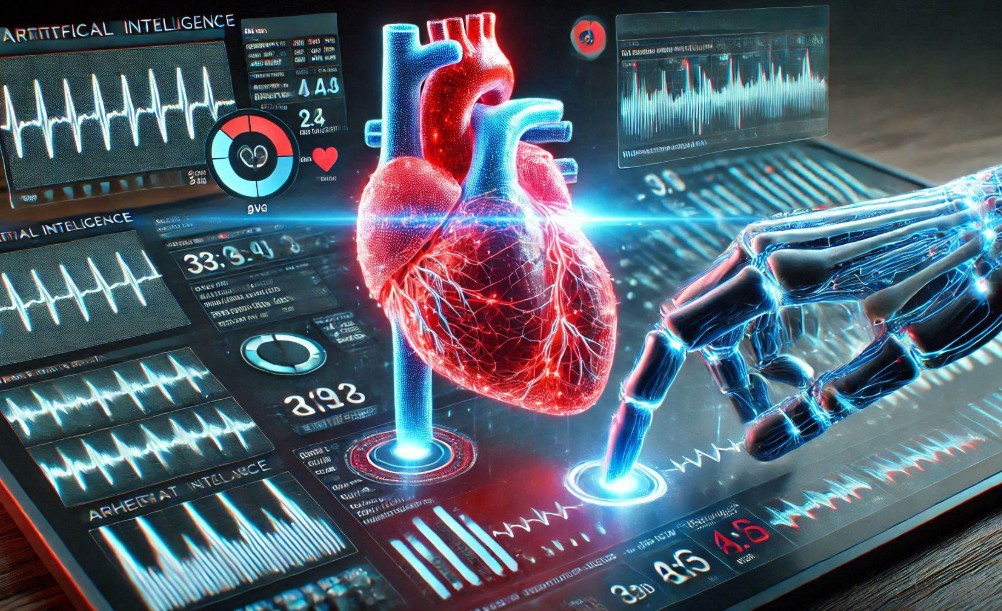In recent years, there has been a significant advancement in the field of Artificial Intelligence (AI) and Augmented Reality (AR). These technologies have become increasingly popular and have the potential to enhance virtual experiences in various fields such as gaming, education, healthcare, and...
Artificial Intelligence Learns to Assess Heart Attack Risk

In recent years, breakthroughs in modern technology have opened up new possibilities in predicting and preventing major health issues. One of the most promising developments is the ability of cutting-edge systems to analyze complex data and foresee potential medical events before they happen. This innovation is transforming how healthcare providers approach long-term wellness and early intervention.
With the power of machine learning algorithms, medical professionals now have access to tools that can assess a person’s vulnerability to critical conditions based on a variety of factors. By studying patterns in health data, these systems provide a more comprehensive and accurate picture of an individual’s well-being, offering timely insights that could save lives.
As these systems continue to evolve, they hold the potential to drastically improve preventative care, enabling doctors to take proactive steps in managing patient health. The future of healthcare is leaning toward a more personalized and data-driven approach, where early detection and tailored treatments become the norm rather than the exception.
AI Technology Revolutionizing Heart Health
The integration of advanced technology into healthcare has transformed the way medical professionals assess and manage patient wellness. In particular, the use of sophisticated systems to predict and prevent serious cardiovascular conditions has the potential to save countless lives. These systems leverage vast amounts of data and advanced computational models to offer more accurate predictions and personalized treatment options.
By analyzing patterns in medical records, lifestyle habits, and genetic information, modern tools are capable of detecting subtle changes in a person's health long before they might otherwise be noticeable. This shift towards data-driven healthcare is helping doctors focus on prevention, rather than simply reacting to emergencies.
Key benefits of these technological advancements include:
- Early detection of potential complications, allowing for timely interventions
- Personalized treatment plans based on an individual’s unique health data
- Reduced reliance on invasive procedures by enabling non-invasive monitoring
- Improved accuracy in predicting long-term health outcomes
- Better resource allocation within healthcare systems, prioritizing high-risk patients
As this technology continues to evolve, its role in the management of cardiovascular health will only grow. With each new breakthrough, there are greater opportunities for improving patient care and ensuring more effective treatment pathways for those at risk of serious health events.

How AI Predicts Heart Attack Risk
Advanced systems capable of processing large amounts of health data are now used to predict the likelihood of severe cardiovascular events. By analyzing various factors, these tools can identify patterns in an individual’s health profile that may indicate future complications. This predictive approach helps doctors make informed decisions and intervene before the onset of critical conditions.
To forecast the likelihood of a dangerous event, these systems examine a wide range of variables, including medical history, lifestyle choices, genetic predispositions, and real-time health metrics. Machine learning algorithms are particularly effective in recognizing complex relationships between these factors, which might be overlooked through traditional methods.
Key factors typically analyzed include:
- Age – Older individuals are more likely to experience serious complications due to natural aging processes in the body.
- Blood pressure – High blood pressure is a known contributing factor to several cardiovascular issues.
- Cholesterol levels – Elevated cholesterol can lead to plaque buildup in the arteries, increasing the risk of blockages.
- Physical activity – Lack of exercise is a major risk factor for heart-related conditions.
- Family history – Genetic factors often play a significant role in susceptibility to cardiovascular problems.
By continuously learning from new data and improving their models, these systems become more precise over time, allowing for earlier detection and more effective prevention strategies. As a result, individuals can receive customized advice on lifestyle changes, medications, and other interventions to maintain long-term health.
Benefits of Early Heart Disease Detection with AI
Detecting cardiovascular issues at an early stage is crucial for effective treatment and prevention of severe outcomes. With advanced technology, medical professionals can now identify potential problems before they manifest into major health events. By leveraging data-driven tools, doctors are able to intervene earlier, improving long-term outcomes for patients.
Timely Interventions for Better Health Outcomes
Early identification of potential cardiovascular concerns allows healthcare providers to implement interventions when they are most effective. By starting treatment early, the progression of the condition can often be slowed or halted, reducing the likelihood of complications such as heart failure or stroke. With early monitoring, patients can also make lifestyle changes that can have a significant impact on their overall health.
Reduced Healthcare Costs and Improved Patient Care
Another key advantage of early detection is the potential for cost savings. Preventative care is generally more affordable than treating advanced stages of cardiovascular disease. By identifying issues in their initial stages, patients may avoid expensive surgeries, hospital stays, and long-term treatment regimens. Furthermore, this approach leads to a more personalized treatment plan, ensuring that patients receive the care they need without unnecessary interventions.
Overall, the ability to detect and address cardiovascular problems early offers a wealth of benefits, from better patient outcomes to reduced healthcare costs, highlighting the growing importance of technology in the future of healthcare.



